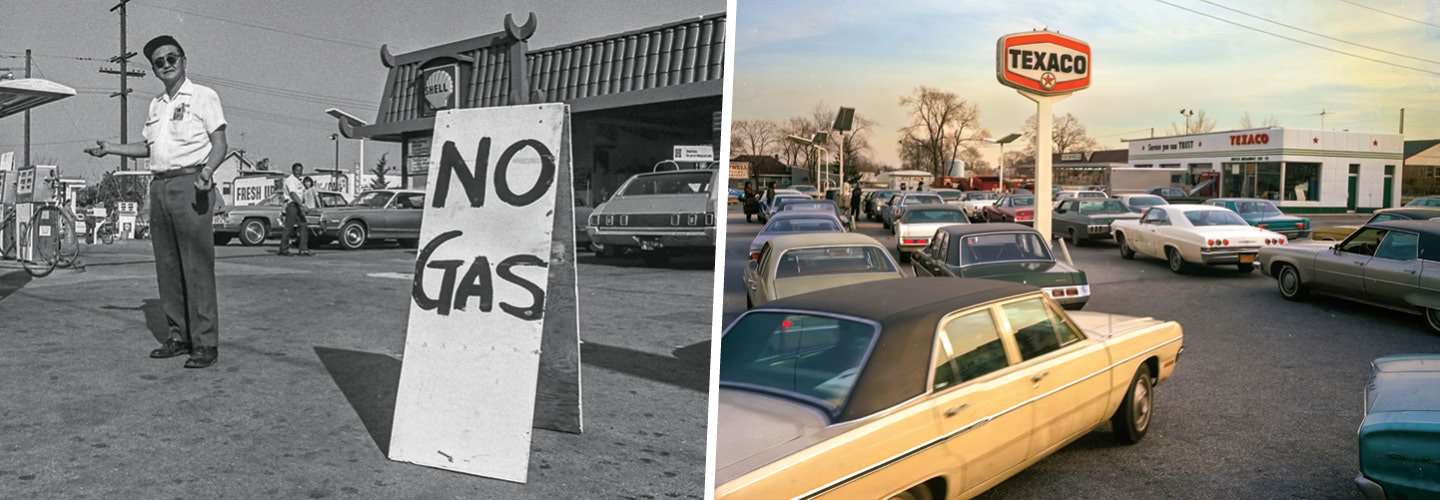Long-haul trucker J.W. Edwards was fed up. As his semitruck slowed along Interstate I-80 in Pennsylvania, the gas tank nearing empty, he guided the vehicle into the middle of the freeway. When the truck stopped—totally empty of fuel—it completely blocked the eastbound lanes.
With traffic building up behind him, Edwards grabbed the microphone on his truck’s radio and broadcast his reason for blocking the roadway. He was protesting the soaring price of gas and diesel fuel brought on by the Arab Oil Embargo of 1973, which had begun two months earlier. Limited fuel supply required the Kansas trucker to stop at nearly every filling station along his route to New York, and he’d had enough of it.
As news of Edwards’ protest spread, truckers on a handful of the nation’s highways joined in, causing traffic jams of their own. Such instances of protest and chaos were common on the roads and at the pumps during the 1973 embargo—a six-month period in which shipments of oil from the Middle East were halted by Arab members of the Organization of Petroleum Exporting Countries (OPEC) in response to America’s military support for Israel.
Long-haul trucker J.W. Edwards was fed up. As he slowed along Interstate I-80 in Pennsylvania, his semitruck’s tank was running out of gas. He then guided the vehicle into the middle of the freeway. Soon the truck was empty of fuel. When it stopped, it completely blocked the eastbound lanes.
Traffic began building up behind him. Edwards then grabbed the microphone on his truck’s radio and broadcast his reason for blocking the roadway. He was protesting the soaring price of gas and diesel fuel brought on by the Arab Oil Embargo of 1973. The embargo had begun two months earlier. Limited fuel supply forced the Kansas trucker to stop at nearly every filling station along his route to New York. He’d had enough of it.
News of Edwards’ protest spread. In response, truckers on a handful of the nation’s highways joined in, causing traffic jams of their own. Such instances of protest and chaos were common on the roads and at the pumps during the 1973 embargo. During a six-month period, Arab members of the Organization of Petroleum Exporting Countries (OPEC) halted shipments of oil from the Middle East. They did so in response to America’s military support for Israel.

